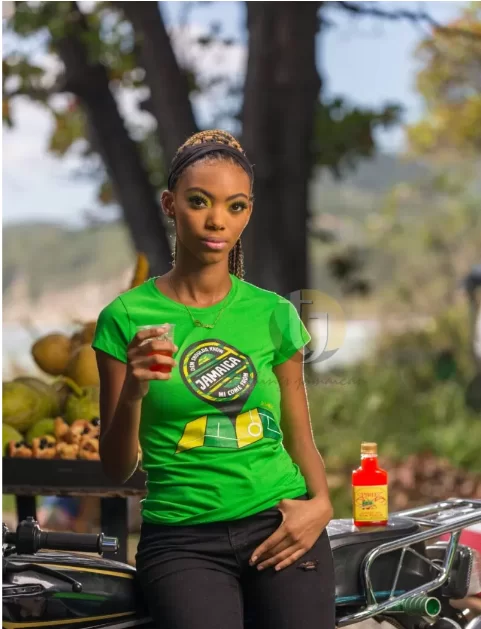Jamaica has long been a symbol of culture, creativity, and resilience, and its brand is synonymous with vibrancy and authenticity. But when it comes to creating and promoting a brand that resonates globally, what does it truly mean to be “Jamaican”? Is it enough to simply be made in Jamaica, or is there something deeper that entrepreneurs should tap into to ensure their products stand out? Building a Jamaican brand isn’t just about slapping a “Made in Jamaica” label on a product, it’s about creating something that is authentically Jamaican, high quality, and emotionally resonant.
Janine Fletcher-Taylor, Manager of the Marketing Services Unit at the Jamaica Business Development Corporation (JBDC) steps into the Entrepreneur Weekly to discuss how Jamaican innovators can build authentic brands that reflect both the country’s culture and the expectations of the global marketplace. Here’s what entrepreneurs should know:
JAMAICAN MADE VS. JAMAICAN: WHAT’S THE DISTINCTION?
Janine breaks down the difference between “Jamaican made” and “Jamaican”. Jamaican made refers to any product that is manufactured in Jamaica, utilising the country’s resources and capabilities. However, a Jamaican product is something with a deeper connection to the island’s culture, history, and environment. This could be a product that carries the spirit of Jamaica. It could be the craftsmanship, the story, or the unique way in which it reflects Jamaican traditions.
For example, a product might be made in Jamaica, but what makes it “Jamaican” is how it embodies the island’s essence. Whether through the flavours of Jamaican cuisine, the art of local craftsmanship, or even the story behind the maker, the brand needs to connect with consumers on a deeper, emotional level. The success of a Jamaican brand lies in its ability to convey its uniqueness and stand out with something authentically Jamaican that resonates globally.
When asked if there’s a universal demand for Jamaican products, Janine emphasised that while the Jamaican brand has global recognition, not all products will tap into this demand automatically. Jamaica’s reputation is powerful, but the demand for Jamaican products hinges on quality, consistency, and value. For instance, aspects of Jamaican culture, such as music, athletics, and cuisine, have a global following, but when it comes to products, it’s about finding what consumers are truly seeking.
Some of the high-demand categories in the Jamaican market include food products, particularly sauces and seasonings, as well as gift & craft. Items that reflect Jamaica’s gastronomy are particularly popular. The distinctive flavours and unique combinations used in Jamaican cooking create a demand for products that reflect the country’s culinary traditions. Agro-processing (sauces, jams, or spices) offers significant growth potential if products can meet global taste preferences and maintain high standards.

SELLING THE BRAND STORY
According to Janine, the brand story is a pivotal aspect of any Jamaican brand. A strong narrative about the product’s origin, the cultural significance, or the artisan’s story can make a big impact on consumers. It’s not just about selling a product; it’s about telling the story of Jamaica’s rich culture. This is what connects customers emotionally to the brand.
Take, for example, products that incorporate traditional ingredients or methods, like those found at Things Jamaican™ stores. Products such as tamarind, guava, and other local fruits are now being packaged in ways that showcase not just the flavour but also the traditions of how these items are consumed in Jamaica. This combination of authenticity and modern appeal draws consumers in, not just because they love the product, but because they are transported back to their memories of Jamaican culture.
INDUSTRIES RIPE FOR DEVELOPMENT
Janine highlights a few categories that are ripe for development, especially in the craft and design industries. Some potential areas for innovation include:
- Fashion Accessories: While there is a market for local fashion, the industry needs higher design standards and a greater emphasis on craftsmanship. Innovators should focus on building premium, unique collections that resonate both locally and globally.
- Home and Office Accessories: There’s a demand for handcrafted home décor and office items that reflect Jamaican culture. Products like rattan furniture, carved wood pieces, and ceramic art can set Jamaican brands apart, especially if they integrate modern aesthetics with traditional craftsmanship.
- Ceramics & Woodworking: These sectors are underdeveloped compared to others, but they present significant opportunities for artisans to innovate. Artisan goods that reflect the heritage of Jamaican materials and designs are valued both in local markets and abroad.
Janine’s final piece of advice is for entrepreneurs to translate their passion for Jamaican culture into a strong business model. While pride and cultural identity are important, entrepreneurs must think about the economics of their brand. It’s not just about the cultural connection; it’s about turning that connection into a successful, sustainable business.
This means focusing on consistency and quality to build a reputation that lasts. A product must be able to meet consumer expectations every time, creating a brand that is synonymous with reliability. When done right, Jamaican brands can command a premium in the marketplace, making them a force to be reckoned with internationally.

THINGS JAMAICAN – 100% AUTHENTIC JAMAICAN BRANDS
All products on the Things Jamaican™ shelves speak to an authentic Jamaican experience. Guaranteed handmade Jamaican creations; meticulously crafted by our very own entrepreneurs right here on Jamaican soil.
Shop at Things Jamaican™ and get access to the creme de la creme of Jamaican products. Our entrepreneurs are skilled artisans who dedicate time and effort to perfecting their products which are made in small craft studios and even in their own homes. Each item is unique and embodies the Jamaican way of life.
Visit https://thingsjamaicanshopping.com/ to order now!

Author









